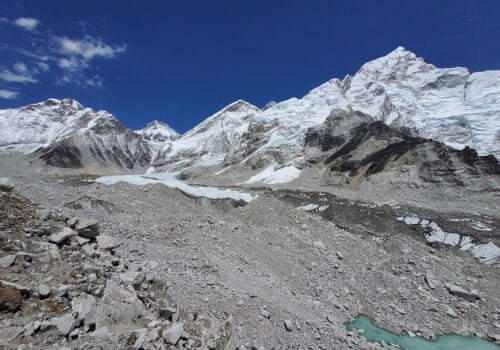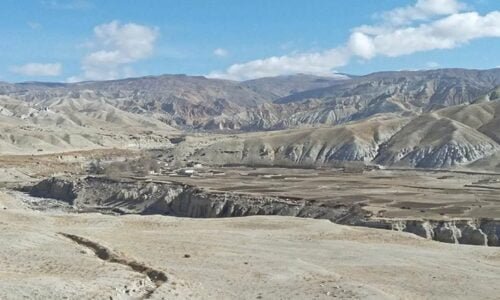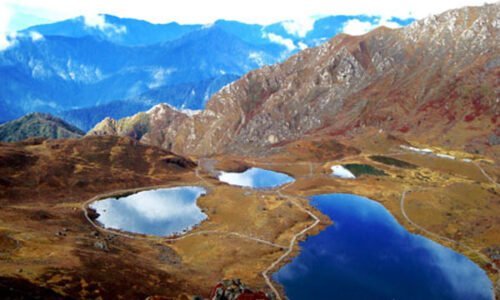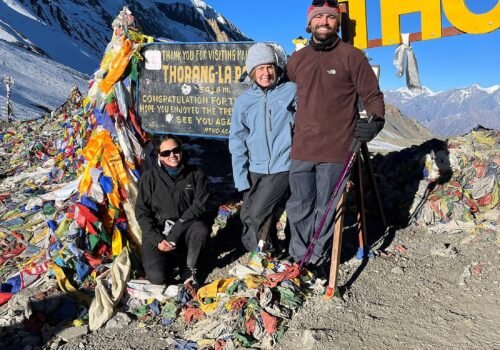History of Lo Kingdom in Mustang
19 Jul 2023 5 min to read

The region known as Mustang, or Lo or Lho in Tibetan, has a rich and ancient history. The exact origins are not well-documented, but the presence of a lineage or dynasty of Kings of Lo suggests the history of Lo Kingdom in Mustang. One historical account states that the grandson of Tibet’s Tsrong Tsong Gompo migrated from Tibet to Lho and established a settlement there. His grandson Ame Pal founded a grand kingdom in the year 1437 BS, thus establishing the kingdom of Lo.
Ame Pal is believed by many historians to be the first King of Lo Manthang. It is said that he invited an admired monk from Tibet who established numerous monasteries and libraries in Lo. Under his guidance, religious books were written, and Lo became a prominent center for religious institutions, attracting followers from various regions. At the time, the Jumla region was a powerful neighbor, so Ame Pal constructed protective walls to safeguard the kingdom from potential attacks. A magnificent four-story royal palace was also built, and seven administrative centers were established, making Lo Manthang the focal point of the region.

However, alternative sources suggest a different story for Ame Pal. According to these accounts, he was a shepherd who lost his sheep and eventually discovered them grazing near Lo Manthang. Inspired by this event, he decided to settle in the area and later established it as an independent kingdom. Despite the varying narratives, many historians agree that Ame Pal was indeed the first king of Lo.
Over time, the kingdom of Lo flourished as a commercial state and became an important trade route between Tibet and India. Mustang collected taxes and its income increased, which stirred envy in neighboring states like Jumla and Parbat. As a result, Parbat attacked Mustang and captured five of its villages, while Jumla also seized parts of the kingdom. In 1728 BS, a palace was built in Kagbeni, but the invasion from Jumla continued. In 1797 BS, Mustang suffered a significant defeat, and the king of Mustang accepted Jumla’s invasion.
Recommended Trip : Upper Mustang Trek 10 Days

During this period, King Prithvi Narayan Shah of Gorkha was on a mission to unify Nepal, and he achieved considerable success in his military campaigns. In 1846 BS, under the reign of King Bahadur Shah, Mustang, along with Jumla and other states, became part of Nepal. However, because Mustang had aided in the unification process, it was established as a separate and dependent state. In 1847, King Rana Bahadur Shah sent an official letter to King Wangel Dorje of Mustang regarding this arrangement.
In 1872 BS, Mustang’s king willingly stepped down from the throne, and his son Jampa succeeded him as the king. Later, during the reign of Jung Bahadur Rana in 1894 BS, some rights of the Mustang king were taken away by the prime minister. Despite these changes, Mustang Kingdom continued to operate.
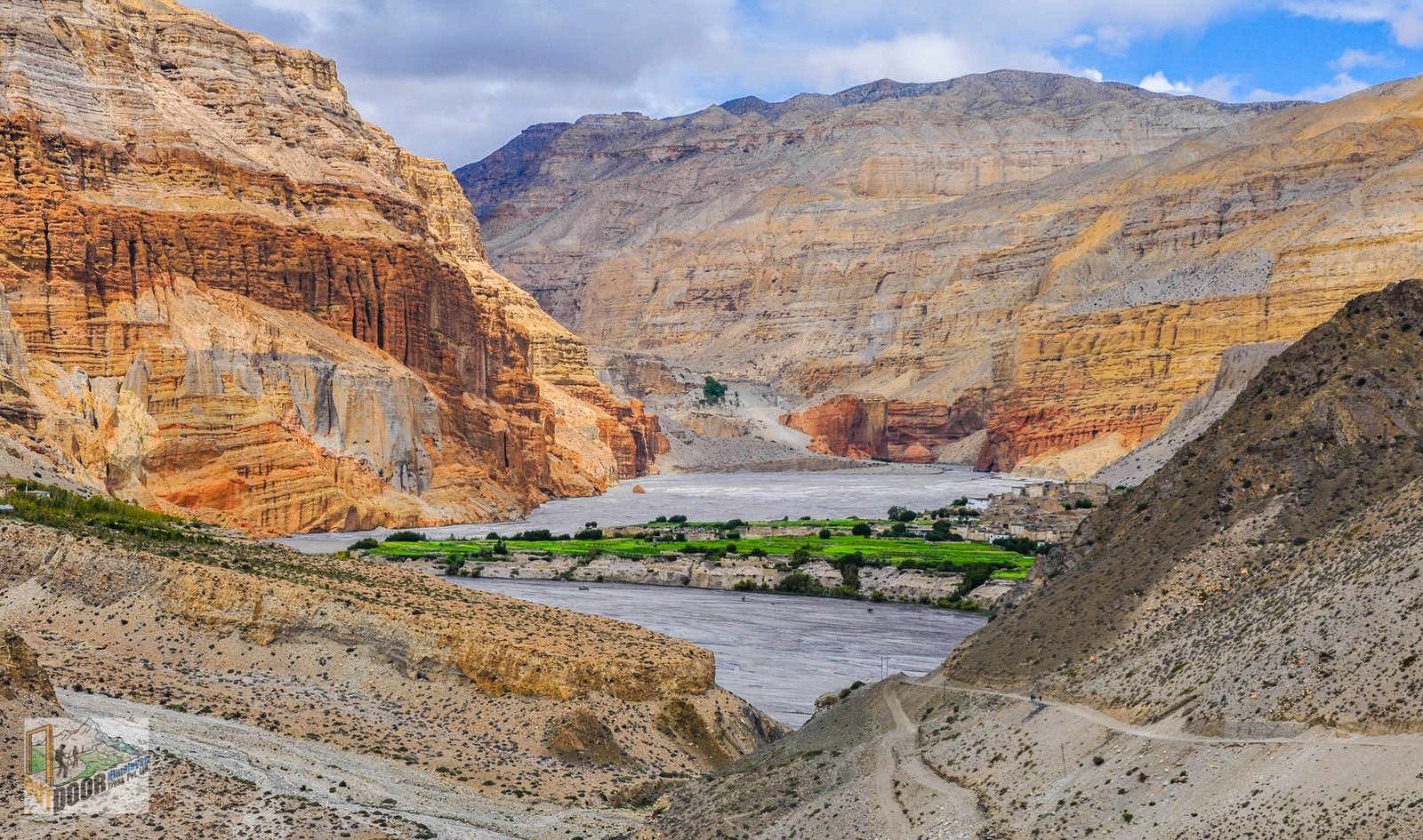
In 2012 BS, the king retired to a monastery, and his son became the new king. However, the son passed away prematurely, leading the former king, Angun Tenzing, to reassume the throne. In 2015 BS, Angun Tenzing became a member of the Kingdom’s parliament and was honored as the Colonel of the Nepal Army. He passed away in 2021 BS, and his youngest son, Jigme Dorje, succeeded him as the 25th King of Mustang.
In 2022 BS, King Jigme Dorje was honored as the Colonel in the Nepalese Army by King Mahendra. He was also chosen as a member of the Kingdom’s Parliament. Furthermore, he was granted a 4-ropani land in Chabahil, Kathmandu. Jigme Dorje later adopted the surname “Bista,” becoming Jigme Dorje Parbal Bista. According to Ramesh Dhungel, the author of the book “The Kingdom of Lo, A Historical Study,” Jigme Dorje was the first king to use the surname “Bista.” In Tibetan culture, there was no tradition of surnames, but due to administrative requirements, the king decided to adopt one.
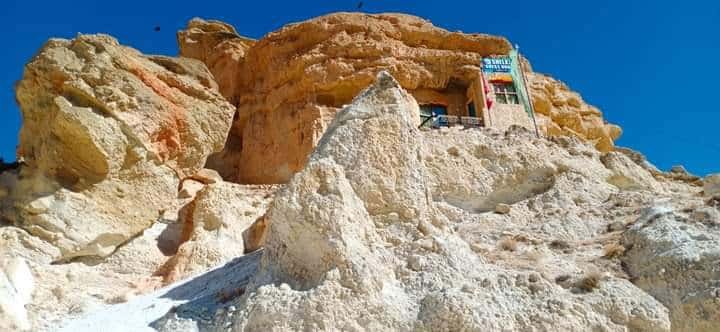
For a significant period, Mustang remained under the control of the Jumla region. The people of Jumla, who were considered superior, were called “Bista.” Consequently, King Jigme Dorje chose the surname “Bista” to coincide with the Jumla tradition. However, other accounts suggest that in 2028 BS, during the reign of King Mahendra, surnames were introduced for the people of Upper Mustang. Thus, it was coincidental that King Jigme Dorje’s surname matched the then Prime Minister Kirti Nidhi Bista.
King Jigme Dorje faced a tragic event when his eight-year-old son passed away, leaving him without any other children. Consequently, he named his nephew, Jigme Singhe Palbar Bista, as his heir. In 2062/63, the monarchy was abolished in Nepal, and the country became a Federal Democratic Republic. This led to the complete abolishment of the monarchy in Salyan, Bajhang, Jajarkot, and Mustang.
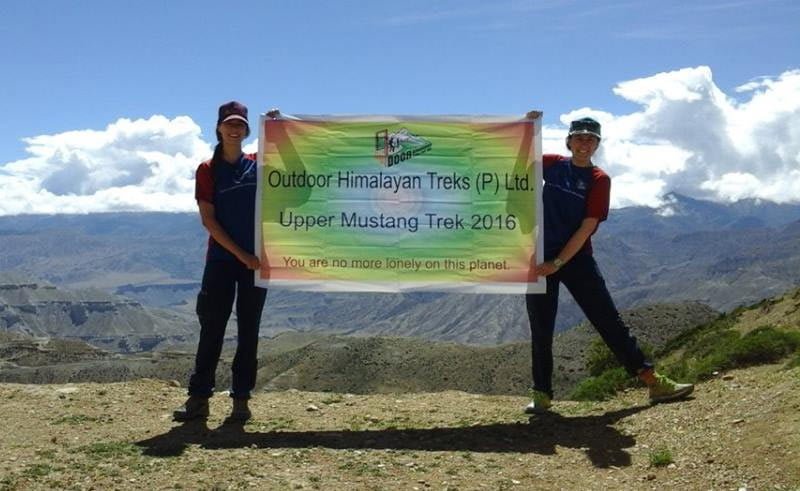
Despite the end of the monarchy, the people of Mustang continued to hold immense respect for their king, valuing the cultural traditions associated with the monarchy. In 2073 BS, on Poush 1, King Jigme Dorje Palbar Bista passed away, and Jigme Singhe Palbar Bista succeeded him as the new cultural king of Mustang, becoming the 26th King of Mustang.
Despite the abolishment of the monarchy, the people of Mustang maintain a deep bond of love and respect for their king. The king and queen are still honored guests at special occasions and festivals celebrated in Mustang. The cultural ties between the people of Mustang and their king remain strong.
In recent times, on BS 2080, Asar 18, the eldest son of Jigme Singhe Palbar Bista got married. The marriage ceremony was grandly celebrated, and the princess was warmly welcomed into the Lo Manthang Palace.

